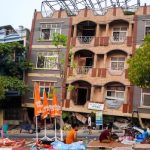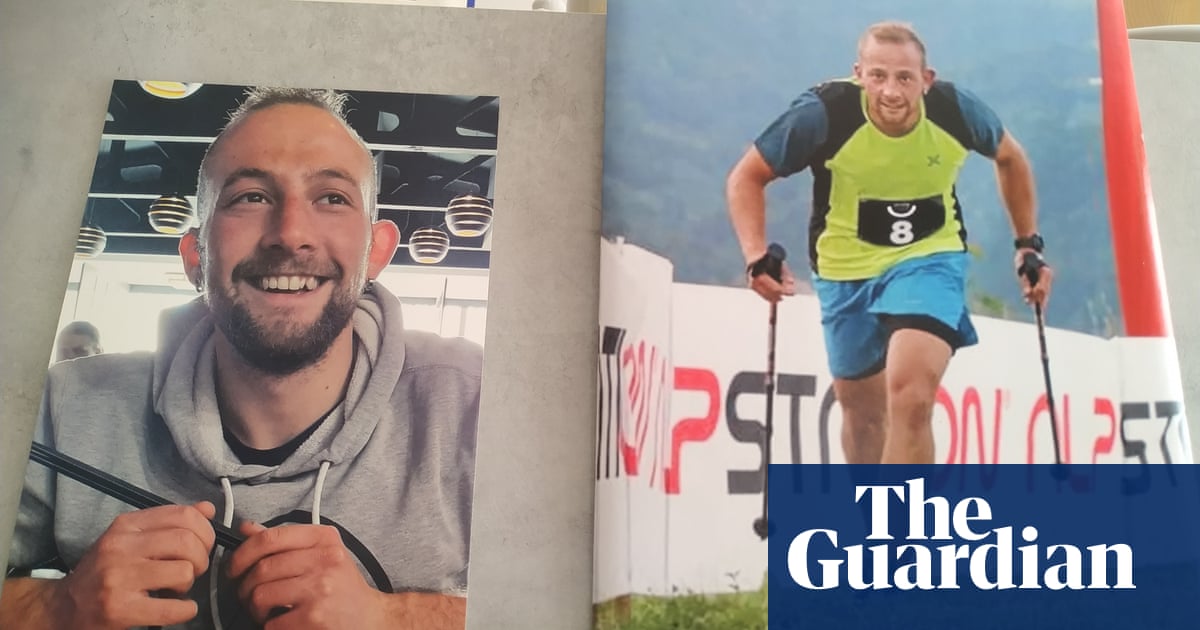Franca Gherardini used to cherish the sublime views from her home in Caldes, a village surrounded by forests on the slopes of the Brenta Dolomites in northern Italy’s Trentino province.
But now she tries to shut out the scene as much as possible, rolling down the window canopy in the morning to avoid looking towards the area where her son, Andrea Papi, 26, was killed by a bear.
“The mountains used to bring me peace,” she said. “Now when I look out of the window, it is gut-wrenching.”
Papi is the only person known to have been killed by a wild bear in Italy in modern times. But his death in April last year marked a watershed moment in a fierce debate over brown bears, imported into western Trentino from Slovenia as part of a rewilding project 25 years ago, that has pitted politicians against animal activists.
The wrangle has overshadowed the grief of Papi’s family and the solidarity of the residents living in Caldes and the 12 other villages that make up the Val di Sole area of the province.
But the community in the valley, which is the only place in the world where wild bears live in such close proximity to humans, made their voices heard loud and clear in a recent consultative ballot organised by a committee set up in Papi’s memory: 98% expressed that they were no longer willing to tolerate the animals, deeming them to be a threat to public safety as well as the local economy.
The organisers hope the vote will reverberate as far as Brussels and force a solution to their problems.
For animal rights’ associations, the plebiscite was “a farce aimed at deceiving people”.
Papi, who had been studying for a master’s in mountain sport science, had gone for run along a popular path in the late afternoon when he encountered JJ4, a female bear. He knew the area well and would often gather with friends in a mountain hut at the top of the path. He posted a panoramic video on Instagram before starting his run, alongside the caption “peace”.
Gherardini said she had a feeling something bad had happened when her son did not return home to prepare for a family dinner that evening. His battered body was found early the next morning on a wooded slope about 60 metres away from the path. A bloodied stick, which he is thought to have used to fend off the attack, lay nearby.
An autopsy confirmed Papi had been killed by JJ4, a bear born after mating between Jurka and Joze, two of the 10 imported bears released into the Adamello Brenta nature park through Life Ursus, an EU-funded project aimed at reversing the area’s dwindling brown bear population.
Bears became the symbol of Trentino, with images of the animal adorning promotional material and featuring in the logo of the local newspaper.
The project was hailed a success by conservationists, but the bear population rapidly grew – numbers today are estimated at between 86 and 120 – and public opinion turned when the animals started gravitating towards inhabited areas, preying on livestock and rummaging through bins in search of food.
Franca Penasa, a member of the Andrea Papi committee and a former president for the Trentino section of the Stelvio national park, opposed the rewilding project from the start.
“There was no counterbalance with the local community,” she said. “The animals were put at the top of the food chain. While I respect the animal activists, they don’t have to live alongside the problem and treat bears as if they were a domestic pet.”
The rewilding was completed in 2004, with the management of the project handed over to Trentino’s authorities. This is where the issues began, according to Massimo Vitturi, a spokesperson for the animal rights’ lobby, LAV.
after newsletter promotion
“The problems today are the result of sloppy politics,” he said. “The province should have promoted coexistence, introducing measures, such as bear-proof bins, to keep both the citizens and bears safe. Bears go towards inhabited areas in search of food – not because they like the towns but because bins are overflowing. People were also never properly informed about the animals and how to keep safe.”
The first bear attack against a human was reported in 2014, and there have been about 10 since, the most recent involving a French tourist. In four of the cases, the bears were culled by the province’s forestry corps.
JJ4, who was classified as dangerous after attacking two hikers in 2020, was captured soon after Papi’s death and has since been held in an enclosure. Her life was spared after a regional court struck down a culling order by Maurizio Fugatti, the president of Trentino province.
Before Papi’s death, people did not perceive the danger the animals posed. Now, many are too afraid to venture into the forest.
“They became traumatised because they didn’t think a bear could kill a person,” said Andreas Pichler, whose documentary Pericolosamente Vicini (Dangerously Close), was recently aired on Rai. “Now we have this total panic. On top of this, people have totally lost faith in the institutions [responsible for managing the situation].”
The Andrea Papi committee is calling for a scientific commission to be created and to establish a limit on the number of bears the territory can feasibly accommodate. They want all bears deemed dangerous to be killed, similar to a policy in neighbouring Switzerland.
Alessandro De Guelmi, a vet, is wholly supportive of the animals, even taking tourists into the forest to see them, but he agrees with the committee. “Dangerous bears need to be immediately culled. I’ve been saying it for 20 years – this is the best way to keep the human population and the other bears safe.”
Claudio Groff, the chief of the large carnivores division of Trentino’s wildlife department, said his unit’s policy towards problematic bears was three-pronged: reduce as much as possible their contact with humans by installing anti-bear bins, using dogs and rubber bullets to deter them, and properly informing people how to keep safe.
“In rare cases when these measures aren’t enough, the only solution is to eliminate the bear and not keep it in captivity,” he said.
Roberto Failoni, a forestry councillor, said the province would “continue to implement every possible strategy to guarantee the safety of people”, and that it felt “even more responsibility” now that citizens’ had expressed themselves.
But for Papi’s parents, who are taking Fugatti and their local mayor to court for alleged manslaughter, the action has come too late. “Andrea was accused of imprudence, but it’s the authorities that have been imprudent,” said his father, Carlo. “We want justice.”












